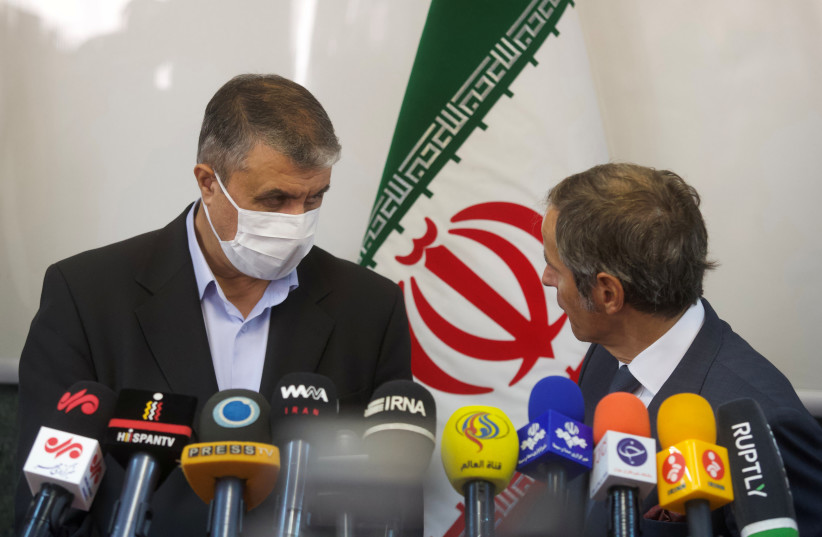International Atomic Energy Agency Director-General Rafael Grossi will visit Tehran on Saturday in an effort to reach certain understandings in the shadow of a potential impending deal at the nuclear talks in Vienna between Iran and the world powers.
Both the agency and Iranian media on Thursday confirmed news of the dramatic visit, coming with little notice and at a decisive moment in the nuclear negotiations that have run from April to June and from November until now.
The stock of enriched uranium amassed by Iran in breach of its 2015 nuclear deal is growing to the point that its highly enriched material is most of the way to a common bomb yardstick, the agency also reported Thursday.
The report showed Iran’s stock of uranium enriched to up to 60% fissile purity had almost doubled, increasing by 15.5 kg. to 33.2 kg. (46 pounds to 110 pounds). That is about three-quarters of the amount needed, if enriched further, for one nuclear bomb, according to a common definition, a senior diplomat said.
That definition – 25 kg. of uranium enriched to 90% – is a theoretical yardstick; how much is needed in real life would depend on further processes the material would still undergo to make an actual bomb, the senior diplomat added.

Grossi’s visit seemed to arise out of a demand made by the Islamic Republic earlier this week that all IAEA probes into its nuclear program’s past military dimensions be closed as part of the possible emerging deal to revive the Joint Comprehensive Plan of Action with the world powers.
The US has reportedly rejected artificially ending the IAEA probes.
Following the Mossad’s raid on Iran’s secret nuclear archives in January 2018, the IAEA wrestled the Islamic Republic into allowing it access to three previously concealed nuclear sites, as well as finding illicit nuclear material at the Turquzabad site.
At a press conference on Wednesday, Grossi said he would not accede to Tehran’s demand to close the probes because of political pressure, but he was also confident that if Tehran showed more openness, the outstanding issues could be resolved.
“With our partners, the E3 fully supports the independence of the IAEA and the professional efforts of D-G Grossi,” British diplomat Stephanie Al-Qaq tweeted Wednesday. “Safeguards are a fundamental part of the nonproliferation system and are separate to the JCPOA. We will always reject any attempt to compromise IAEA independence.”
It was unclear if Grossi’s visit is designed to reach a compromise on resolving the agency’s questions in its probes to close them, to informally reduce Iranian fears that the issue will be used as a political cudgel going forward or to just explain technical issues.
Reuters contributed to this report.
